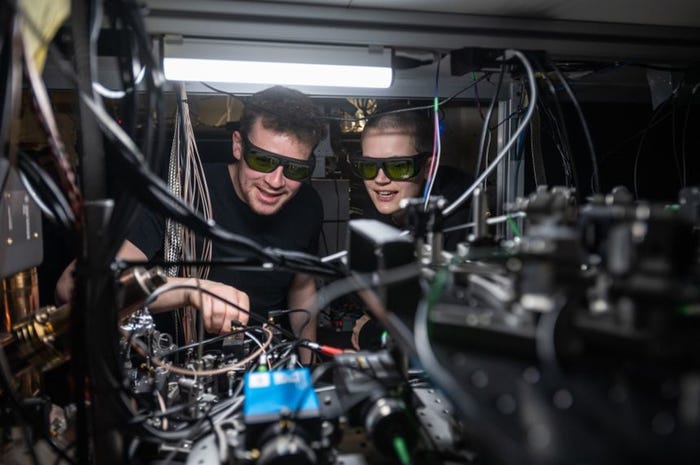
Connects decision-makers and solutions creators to what's next in quantum computing
Quantum-Enhanced Generative AI Creates Viable Cancer Drug CandidatesQuantum-Enhanced Generative AI Creates Viable Cancer Drug Candidates
Zapata AI study outperformed classical methods to deliver drug candidates in a world-first

Industrial generative AI company Zapata AI has run a generative model on quantum hardware to generate viable cancer drug candidates, outperforming classical models for the first time.
The company's scientists collaborated with Insilico Medicine, the University of Toronto (UofT) and St. Jude Children’s Research Hospital.
The researchers used generative AI to develop new KRAS inhibitors. KRAS is one of the most commonly mutated proteins in cancer and has historically been deemed “undruggable.”
They ran generative models running on classical, quantum and simulated quantum hardware. Each platform generated 1 million drug candidates each, which were then filtered algorithmically and by humans. The quantum computer used was a 16-qubit IBM device.
The resulting 15 molecules were then synthesized and tested through cell-based assays. The two molecules generated by the quantum-enhanced generative model were different from existing KRAS inhibitors and generated superior properties to those generated by purely classical models.
“This project is an exciting demonstration of how quantum and classical computing can complement each other to deliver an end-to-end solution,” said Zapata AI chief technology officer and co-founder Yudong Cao.
“The collaboration between Zapata, UofT, St. Jude and Insilico is also a great example of how the startup and university ecosystems can leverage each other's advantages to drive progress. We’re looking forward to taking this research further to move the discovered molecules through the drug discovery pipeline, apply our methodology to other disease targets, and extend our quantum-enhanced generative AI to other industrial use cases with complex design challenges.”
The research points to a promising future of hybrid quantum generative AI for drug discovery using today’s noisy intermediate-scale quantum (NISQ) devices.
“I have always been excited about the potential of AI and quantum computing for drug and materials discovery,” said Alán Aspuru-Guzik, professor of chemistry and computer science at the University of Toronto, and a co-founder and scientific advisor of Zapata AI.
“We are just starting to see how to integrate quantum computing modules into the drug discovery pipeline. It is great to see that we were able to successfully discover a new compound to inhibit KRAS. Many questions are open. Although everything you can do in this paper could also be done with a classical computer, it is exciting to see that this work sets the path for future, more powerful quantum computers to demonstrate their abilities. The global community of researchers will be able to further improve upon this first-of-a-kind experiment.”
About the Author
You May Also Like






